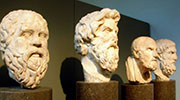هوسرل: «اگر مقرر است [فیلسوف] فردی باشد که برای خود میاندیشد، فیلسوفی مستقل با ارادهای رها از همهی پیشداوریها، باید این فراست را نیز داشته باشد که همه چیزهایی که بدیهی میپندارد پیشداوریاند، و همه پیشداوریها ابهاماتی برخاسته از رسوبات سنت هستند، نه صرفاً احکامی که صدق و حقیقت آنها هنوز قطعی نشده است. و این حتی در مورد وظیفه و ایدهی بزرگی که "فلسفه" نامیده میشود نیز صادق است. تمام داوریهایی که فلسفی پنداشته میشوند، به این وظیفه و این ایده مرتبط اند.»
If [the philosopher] is to be one who thinks for himself, an autonomous philosopher with the will to liberate himself from all prejudices, he must have the insight that all the things he takes for granted are prejudices, that all prejudices are obscurities arising out of a sedimentation of tradition—not merely judgments whose truth is as yet undecided—and that this is true even of the great task and idea which is called “philosophy.” All judgments which count as philosophical are related back to this task, this idea.
Phenomenology and the Problem of History: A Study of Husserl's Transcendental Philosophy (Studies in Phenomenology and Existential Philosophy) / David Carr / Northwestern University Press; 2nd edition (February 24, 2009)

